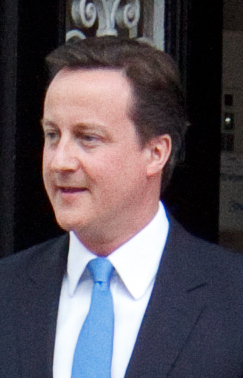The wolves are circling Europe. The emerging economies of Asia and South America sense weakness. Day by day, they are pushing the boundaries, seeing how far they can go, testing a new world order. But inside the camp, the old European economies are too deafened by the din of their own internal squabbles to hear the approaching danger.
This week it was Spain’s turn, as Argentina nationalised the Spanish-owned majority stake in its largest oil company. The Spanish government warned of “consequences”, the EU said it sent a “negative signal” to investors and said it was considering all “possible options”.
What options? What consequences? Europe is speaking the language of the old order, when developing economies could be kept in check by Europe warning that its investors would be spooked. But European investment isn’t so sought after as it once was, today it’s the European economies that are in need of funds.
The timing was not accidental. Argentina has watched Spain’s economy hover near crisis.
In recent months it was Britain, as Argentina dragged up the old issue of the Falkland Islands. Behind all that rhetoric about Prince William, there were more serious moves afoot. Argentina persuaded Latin American countries to join a blockade, preventing any ships flying the Falklands flag from docking in their ports.
Argentina is taunting David Cameron’s government with a question: if it came to war again, after all its defence cuts, could Britain still win? Could it even still fight?
It’s not just South America. Across the world, India earlier this year seized two Italian marines from a ship in international waters. The marines, who were part of a security detail protecting an Italian merchant vessel from pirates, had accidentally shot dead Indian fishermen. The Italians said they believed they were pirates.
Whatever the rights and wrongs of that, by seizing the marines for an incident that took place in international waters, and insisting its courts have jurisdiction, India was making an assertion of power. It was a declaration of a new world order in which India is a force to be reckoned with — and Italy and the EU were helpless. They had nothing to threaten India with: the EU is winding down its development aid programme in India, Indian companies are major investors in European economies.
And while all this goes on, most people in Europe remain oblivious. They are too busy fighting over staggeringly expensive social security systems no one can afford any more.
In Britain, George Monbiot weeps in the The Guardian “When my second child reaches my age I fear the NHS, along with the tiger and rhino, will be part of a mythologised arcadia,” while union leaders threaten to sabotage the Olympic Games with strikes against government spending cuts. The national debate is based on the premise that the cuts are ideological, some sort of triumphant evisceration by Cameron’s Conservative Party. No one considers the possibility that the money really has run out.
It is the decadence of Rome before the fall, still clamouring for bread and circuses as its rivals close in.
Perhaps there is justice in this. Perhaps it is only right that the former colonies of Europe emerge to take economic and political hegemony. Certainly, the damage to the national pride of those old colonial powers Britain and Spain is nothing to mourn.
But there is something worth fighting for in Europe. The values those people are out on the streets protesting for do mean something, the belief in universal free health care, in a system in which the weak are not left to starve but are supported.
But it can only be defended when Europe realises that this is not an internal debate, that what is threatening it is not the ideology of the David Camerons of this world, but the new world economic order.




Leave a Reply